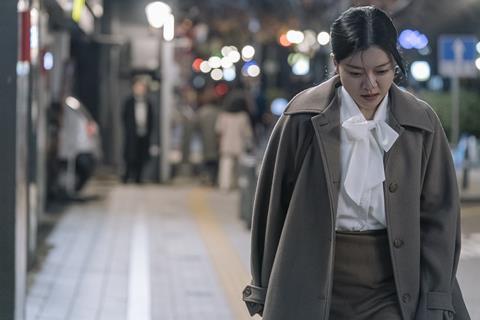Busan’s opening film follows a disaffected South Korean woman who flees Seoul for New Zealand

Dir: Jang Kun-jae. South Korea. 2023. 107mins
The frustrations of a young South Korean woman are taken for a long narrative walk in the latest by A Midsummer’s Fantasia director Jang Kun-jae. Based on a novel by Jang Kang-myung, this deferred coming-of-age movie about the trials and tribulations of Korea’s Generation Z dutifully ticks off topics like romantic commitment, the place of women in Korean society, class tensions, McJobs, ‘education fever’ and the weight of parental expectations. The edgy, restless central performance of Ko A-sung, 17 years on from her teen debut in Bong Joon-ho’s The Host, brings some dramatic ballast to an episodic story caught uneasily between ironic national critique and indulgent national pride; one which has seemingly been purpose-built to appeal to the lost and drifting generation it depicts.
The edgy, restless central performance of Ko A-sung brings some dramatic ballast
With its catchily provocative title and unapologetically Seoul-oriented view of the world, it’s easy to see why Because I Hate Korea has been chosen to open this year’s Busan International Film Festival. It is equally easy to predict that it may not travel much beyond national confines, though it may score some spillover play in Japan – a country whose Generation Z-ers share many of the same problems.
“Ever tried the morning commute from Incheon to Gangnam?” Lines like this, delivered in voice-over monologue by Ko’s stroppy but also fiercely independent character Gye-na, seem purpose built to elicit smiles and groans of recognition from other young Koreans trapped in the same daily wage-slave grind, even if they don’t actually live in Seoul. Gye-na detests her anonymous office job, in which efficiency is demanded alongside the requirement to turn a blind eye to a rigged procurement bid.
The best Gye-na can say of her boyfriend of seven years, Ji-myoung (Kim Woo-kyun) is that he is “polite and unpretentious” – but he also happens to be from a wealthier family, something her hard-up mother, who dreams of moving into a larger apartment, encourages her daughter to make the most of. Faced with such pressures, and the relentless cold of the Korean winter, Gye-na ups and leaves for New Zealand’s North Island – where she discovers a strangely distorted reflection of the country she thought she was leaving behind in Auckland’s large expat Korean community.
It is here that Because I Hate Korea reveals one of its limitations, in particular when dealing with hostile locals including a wooden discussion about the North Korean nuclear threat at a party Gye-na attends in Auckland. Jang Kun-jae’s screenplay is more convincing in its agile temporal leaps between Gye-na’s New Zealand interlude and her life in Korea prior to departure. In both places, she comes up against male immaturity and male privilege, class snobbery and the relentless pressure to fund her studies, which she does, in her new home, by mixing up waitressing, nannying and Amazon warehousing.
Her generation always seems to have a sleeping bag to hand (at one point, Gye-na finds herself living in a converted garage), entering into relationships that involve little or no physical contact, and being constantly subject to some form of evaluation – whether it be university exams, the ‘PR’ score that determines immigration status, or the ‘IELT’ English proficiency number that opens doors to academic and economic progress.
Pandering to meet-cute cliches with its pretty, muzak-oriented soundtrack and the zany character of Jae-in (Joo Jong-hyuk) – an amiable weirdo who is the only man Gye-na can really relate to – Because I Hate Korea seems to be constantly reminding itself that it needs to be a rom-com as well as a coming of age story and a mild cultural satire. But the film’s strongest card is the nascent but still undeclared feminist perspective of a young woman who wants to make her own mistakes – not the ones that society, her parents, her employers and her peers impose upon her.
Production company: Mocushura Inc.
International sales: Showbox Corp, amy@showbox.co.kr
Producer: Youn Hee-young
Screenplay: Jang Kun-jae, based on the novel of the same name by Jang Kang-myung.
Production design: Kim Sun-ha
Editing: Lee Yeon-jeong
Cinematography: Na Hui-seok
Music: Kwun Hyun-jeong
Cast: Ko A-sung, Kim Woo-kyun, Joo Jong-hyuk, Lee Song-hee, Oh Min-oe, Park Seung-hyun, Park Seong-il, Meaningful Stone, Lee Hyun-song, Morgan Oey, Trae Te Wiki, Kim Ji-young
























